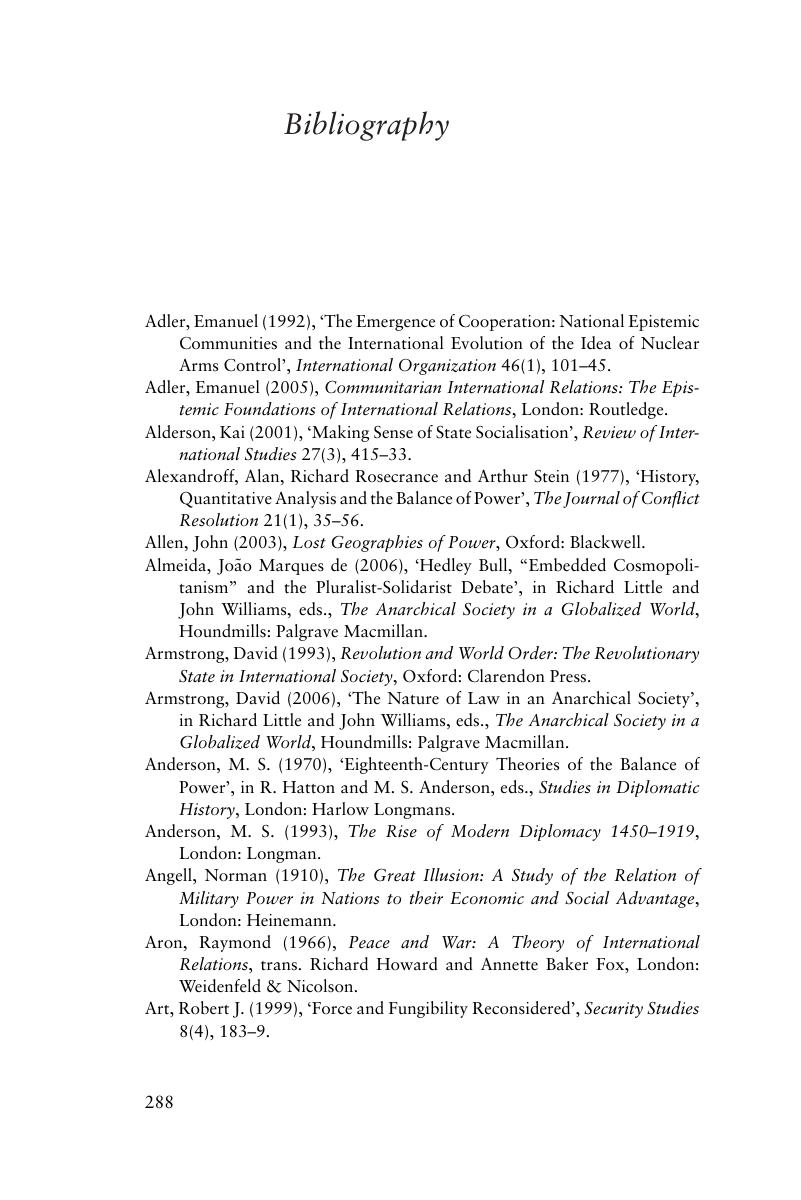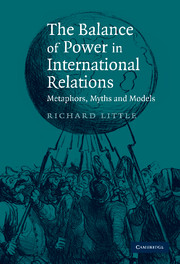Bibliography
Published online by Cambridge University Press: 05 October 2014
Summary

- Type
- Chapter
- Information
- The Balance of Power in International RelationsMetaphors, Myths and Models, pp. 288 - 311Publisher: Cambridge University PressPrint publication year: 2007



